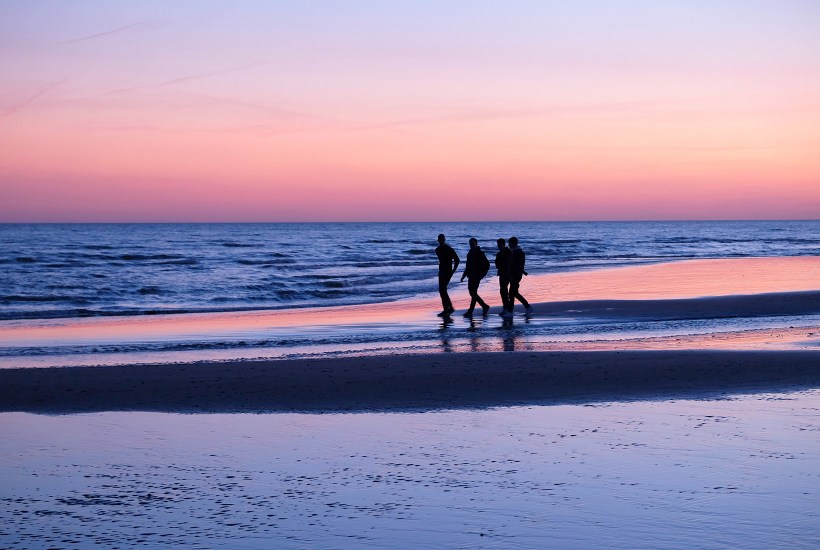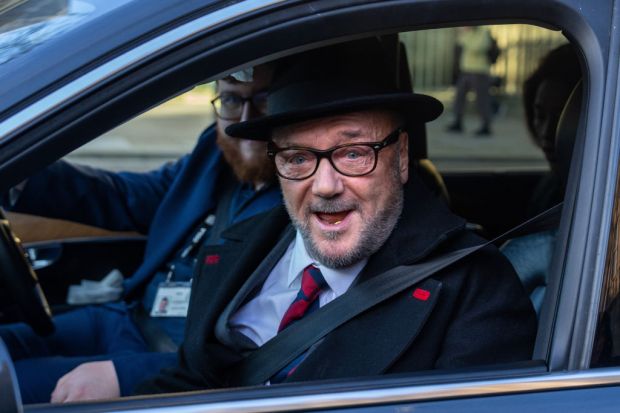Yep, the end is in sight, courtesy of other countries organising the practicalities for the return to some sort of normal life – shopping and schooling, as in Germany. That means Britain will, like it or not, be playing catchup sooner rather than later.
And when this oddly dreamlike existence is over, it’s going to feel like that bit of the Sleeping Beauty when the court wakes up after its hundred year sleep, yawning and blinking and eyeing each other rather shyly. It’s partly the warm weather; being obliged to stay away from work when it’s sunny, with quite a lot of your wages paid by the government (if like me you’re on furlough), has given these weeks an unreal quality. Unless of course, someone you care about was one of the 20,000 officially recognised victims of the virus – a dream for some has been a nightmare for others.
Before we forget what these very weird times were like, let’s start an audit of what we’ve found out while we’re still in it. Lessons and warnings. Good things and bad. What it’s taught us, if anything.
- People don’t behave well under threat. Remember, right at the beginning, when we all thought there’d be a run on loo paper and we’d be using newspapers instead? The response was to turn worry into reality, creating a run on loo roll plus anything else that might come in handy during lockdown. Remember all those shoppers coming out of Waitrose and Tesco with loaded trolleys, smug expressions and ten packets of pasta? That’s what people do faced with the prospect of scarcity; they turn into something out of Thomas Hobbes. I speak as one with six reproachful tins of sardines in the cupboard.
- Conversely, when the threat of scarcity is lifted, and there is loo roll to burn, we discover an altruistic side. Even if it’s only putting your name down for a telephone conversation with an oldie, or fetching a prescription, which over half a million people did. Mind you, I have offered in four places to do some light and undemanding social work and found no takers.
- We are not all in this together. Just how not equal we are only really emerges at times like this. The elite, political, and media classes made for the country as soon as lockdown threatened, and those who couldn’t go themselves sent their children there. They are having what can only be described as an extended summer holiday. Which is not quite what you’re having if you have none of the following: an estate; a country home; a garden; a patio/balcony; a window box. Space, privacy, light and air – it’s all about class.
- We realise just how much feminism and gender equality relies on the physical labour of other women. Have you been enjoying all those articles in the papers about high-flying women being obliged to raise their own children, do their own cleaning and return to domesticity? The number of important people with cleaners – and I would if I could – is apparent from the trauma of those who now have to clean their own loos. Also funny is the dearth of articles about men who now have to mind the children and chip in with the cleaning as well.
- That gag about the NHS being the nearest thing Brits have to a national religion is getting worryingly true. Naturally, one salutes those who put themselves in harm’s way in A&E wards. But it was striking that care homes, where the vulnerable old were, have come a poor second to hospitals and surgeries, from PPE supply to recognition of staff.
- We are realising what a core worker is. Personally, the people I really wanted to cheer in the streets were the dustmen who are out every morning at 7am, worryingly not socially distancing as they chucked the bags – probably all hopping with viruses – in the back of the lorry, sitting right next to each other and cheerfully getting on with things. If they stayed at home we really would see the underbelly of civilisation.
- Education is overrated. Most children aren’t actually getting any schooling. I have two teenage children, 13 and 16, neither of whom have had any direct contact with a teacher since the start of lockdown. Google Classroom has, however, been an opportunity for my daughter to keep in touch with her friends, notionally on the basis that they’re doing work together. Yeah. Private schools are another matter. They’re actually teaching.
- Exams are overrated. Or you could infer that from the Government’s failure to make provision for GCSEs or A levels for a million pupils. Instead Ofqual has delegated the allocation of grades to teachers who have a rubbish record at predicting them. Germany is managing to hold state exams now; Ireland is having them in July. Why not here?
- National differences really matter. Why do Scandinavian countries have lower infection rates than comparable European nations? Because social isolation is the norm there, silly. By comparison with gregarious cultures, Scandinavians don’t talk. Half of Swedish households are single person. They’re not like everyone else. It shows.
- The Queen. You remember all that talk about how, when she’s 95, she’s going to be handing things over to the Prince of Wales? Well, scrap that. So long as she lives, she’s indispensable.
Got something to add? Join the discussion and comment below.
Get 10 issues for just $10
Subscribe to The Spectator Australia today for the next 10 magazine issues, plus full online access, for just $10.




















Comments
Don't miss out
Join the conversation with other Spectator Australia readers. Subscribe to leave a comment.
SUBSCRIBEAlready a subscriber? Log in